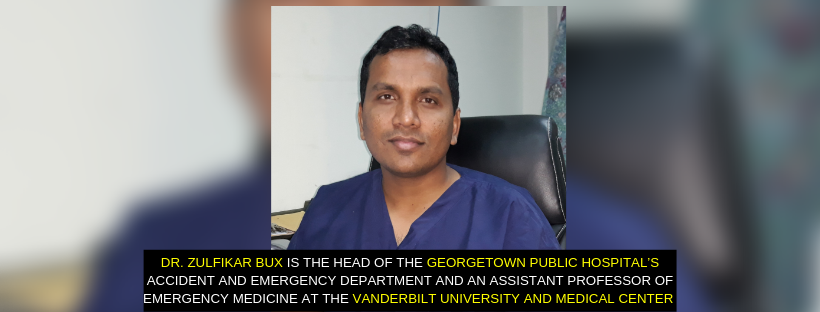Health In Focus With Dr Zulfikar Bux
Medically termed, fainting is called “Syncope”. Fainting is a common occurrence that can sometimes be serious.
After fainting, a person quickly recovers and is often okay again. Fainting is very common. About one out of every three people experiences it at some point in life. In many cases, fainting is nothing to worry about.
Fainting happens when the brain temporarily doesn’t get enough blood. One of the most common reasons this happens is called “vasovagal syncope.” If you have vasovagal syncope, your body has a reaction in which your heart beats too slowly or your blood vessels expand (or both). This can happen for lots of different kinds of reasons.
People can have vasovagal syncope if they:
•Have stress from fear or pain (for example, because they are injured or have blood taken for tests)
•Stand for too long or are over-tired or overheated
•Have an unusual reaction to urinating, coughing, or other body functions
Sometimes vasovagal syncope happens with no clear cause.
People can also have fainting that is not vasovagal. This can happen due to the following problems:
•The heart beats too quickly or too slowly because of problems with the heart’s electrical system or because of side effects from some medicines.
•Something blocks the flow of blood in the heart. This can happen in people who have conditions called “aortic stenosis” (a valve disease) or “hypertrophic cardiomyopathy” (a heart muscle disease).
•Your blood pressure drops when you stand or sit up.
That can happen if you:
•Are having a heart attack
•Do not drink enough water
•Take certain medicines that cause your blood pressure to drop
•Drink alcohol
•Lose a lot of blood (for example, if you get hurt)
•Have a medical condition that affects your blood pressure
In many cases it is not dangerous. But it can be dangerous if you fall and hurt yourself when you faint. It can also be dangerous if you faint while driving. To be safe, check with your doctor before you start driving again after you faint. Anyone who faints should see a doctor. Most cases of syncope are not serious. But people can get hurt when they faint. Plus, in some cases syncope is caused by a serious medical condition that should be treated. Knowing what caused you to faint can help you prevent it from happening again.
Yes. Your doctor will do a test called an electrocardiogram (also called an “ECG” or “EKG”). For this test, the doctor will put sticky pads on your chest, belly, arms, and legs. Long, thin wires connect the pads to a machine. The device records the electrical activity in your heart. This can show if the pattern of your heartbeats is abnormal.
You might get other tests, too; it depends on your doctor’s findings when he/she talks to you and examines you.
You might be able to reduce your chances of fainting again if you:
•Learn what causes your fainting:
•If an activity or condition causes your fainting, you can try to avoid it.
•If a medicine causes your fainting, your doctor can help you find an alternative.
•If a heart condition is causing your syncope, your doctor can suggest a treatment.
•Lay down with your feet up when you feel like you might faint.
That depends on what is causing your fainting. In many cases, the main treatment is to avoid the situations that cause fainting.
In less common cases, other treatment might be needed. For example, you might need a pacemaker if your heart beats too slowly and this causes fainting. A pacemaker is a device that is put under your skin. Thin wires attach them to your heart. They help the heart beat at a normal speed or in a regular pattern.
If your child faints, you should take him or her to see a doctor. Most cases of fainting in children are not serious. Often they are caused by vasovagal syncope. Fainting can also happen in children if:
•They hold their breath for too long
•Their blood pressure drops when they stand or sit up
•They swallow medicines, drugs, or alcohol
•They have carbon monoxide poisoning
In less common cases, fainting in children can be caused by a life-threatening condition, such as a serious heart condition, overheating, or a severe allergic reaction (called anaphylaxis).
If you or someone you know faints, go and get checked out.
While fainting is not often dangerous, the times when it is dangerous, can be life-threatening.











